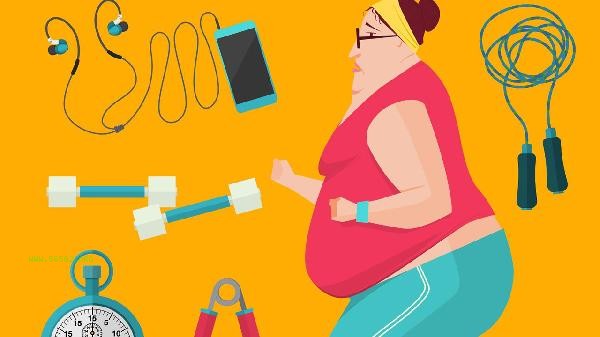Sudden weight gain in women may be related to factors such as hormonal changes, imbalanced dietary structure, lack of exercise, excessive stress, and medication side effects. To address these reasons, scientific weight loss can be achieved through adjusting diet, increasing exercise, improving sleep, managing emotions, and using medication rationally.

1. Hormone changes
Before menstruation, during pregnancy or menopause, fluctuations in estrogen and progesterone levels tend to lead to water and sodium retention and fat accumulation. It is recommended to choose low GI foods such as oats and sweet potatoes, combined with moderate aerobic exercise, to avoid a high salt diet exacerbating edema. Endocrine diseases such as hypothyroidism require medical examination and screening.
2. Imbalance in dietary structure
Excessive intake of refined carbohydrates and high-fat foods can lead to excess calories. The staple food can be replaced with whole grains to increase the intake of high-quality protein and dietary fiber such as broccoli and chicken breast. Avoid eating at night, use small plates to control food intake, chew slowly to enhance satiety.
3. Lack of exercise
Prolonged sitting can lower basal metabolic rate. It is recommended to engage in 150 minutes of low-intensity exercise per week, such as brisk walking, swimming, or yoga, combined with resistance training twice a week to increase muscle mass. Utilize fragmented time for non exercise activities such as household chores and climbing stairs to burn calories.

4. Excessive stress
Long term stress can stimulate cortisol secretion and promote abdominal fat accumulation. Anxiety can be relieved through meditation and deep breathing, ensuring 7 hours of high-quality sleep. Moderate supplementation of magnesium rich foods such as bananas and nuts can help stabilize nervous system function.
5. Drug side effects
Some contraceptives and antidepressants may cause weight gain. Adjust the medication plan under the guidance of a doctor to avoid self discontinuation. During the medication period, it is necessary to strictly control the calorie intake of the diet and increase the intake of vitamin B to promote metabolism.

Scientific weight loss requires establishing sustainable lifestyle habits, maintaining a daily water intake of at least 2000 milliliters, and using cooking methods such as steaming to reduce oil intake. Record diet and exercise data to help review and adjust, set reasonable goals to avoid extreme dieting. If there is continuous abnormal weight gain or accompanied by other symptoms, potential diseases such as polycystic ovary syndrome should be promptly screened.








Comments (0)
Leave a Comment
No comments yet
Be the first to share your thoughts!